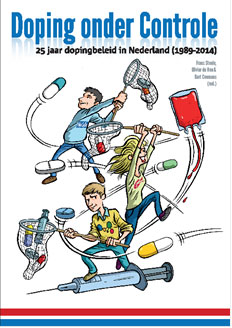General
The goal of the Prevention Department is: the prevention of inadvertent and deliberate doping infringements in Dutch sport. The target groups are:
- elite athletes (including elite athletes of the future);
- athletes in sports organised outside a club context (fitness);
- support staff (in particular trainers/coaches, sports doctors and GPs, physiotherapists, dieticians, masseurs and parents);
- sports associations;
- the general public.
The department's activities include providing information about doping regulations, the risks of doping, proposing healthy and legitimate alternatives for enhancing performance, and efforts to establish or reinforce anti-doping attitudes among athletes and support staff.
Information meetings for athletes (particularly elite athletes) always cover the following areas: the health risks associated with doping, the rights and obligations of athletes, the prohibited list, the doping control procedure, arrangements for therapeutic use exemptions, the whereabouts system, the risks of dietary supplements and the damage inflicted by doping to the 'spirit of sport', and the 100% Dope Free campaign.
Meetings for support staff cover these issues as well, but also focus on the rights and, above all, the obligations of support staff, as well as factors that exacerbate or mitigate the risk of doping.
With the fitness training target group, the emphasis is on guest classes during the numerous fitness training courses. These classes look at the different types of doping, the risks of use, the way the substances work and the side-effects, fact and fiction relating to supplements, doping prevention and the Own Strength campaign. There is also a focus on 'harm reduction': the mitigation of the health risks associated with use.
The corporate website and the 100% Dope Free and Own Strength sites are important ways of communicating with the various target groups. Anyone with doping-related questions can send an e-mail to the Doping Infolijn.
Elite Sport
Alongside the sport-wide campaign, 100% Dope Free, considerable amounts of time were spent in 2014 on the campaign focusing specifically on cycling Racing for a clean sport. This campaign followed on from the recommendations of the Sorgdrager Commission, namely to strengthen the anti-doping culture in cycling. It was subsidised by the Ministry of Health, Welfare and Sport, starting in early 2014, and it will continue until mid-2015.
Elite sport campaign 100% Dope Free
All our usual activities focusing on Dutch elite sport have now been transferred to the elite sport campaign, 100% Dope Free. The campaign is based on periodical surveys of Dutch elite athletes that have shown that the vast majority of elite athletes are opposed to doping. In addition to providing information, this campaign focuses primarily on reinforcing and changing attitudes and behaviour.
www.100procentdopefree.nl
The campaign's site plays a central role: all information about the campaign can be found there. Seventeen news flashes appeared in 2014 and four newsletters were sent to all the subscribers (numbering approximately 14,500).
100% Dope Free - True Winner
This part of the campaign (which began in December 2007) gives elite and competitive athletes the opportunity to sign an anti-doping statement and to adopt an active stance against doping. Once they have signed the statement, the athletes are sent the gold wristband to symbolise the fact that you are only a true winner if you perform without doping. In 2014, the number of statements increased from more than 28,000 to more than 29,500.
This part of the programme was developed and implemented in collaboration with the NOC*NSF Athletes Committee. Femke Dekker (rowing), Rutger Smith (athletics), Jokelyn Tienstra (handball), Carl Verheijen (speed skating), Richard Bottram (marathon 365 & Wheel of Energy), Epke Zonderland (gymnastics), Mirjam de Koning-Peper (swimming), Thijs van Valkengoed (swimming), Churandy Martina (athletics), Marianne Vos (cycling), Vince Rooi (baseball) and Bauke Mollema (cycling) are the ambassadors for the campaign.
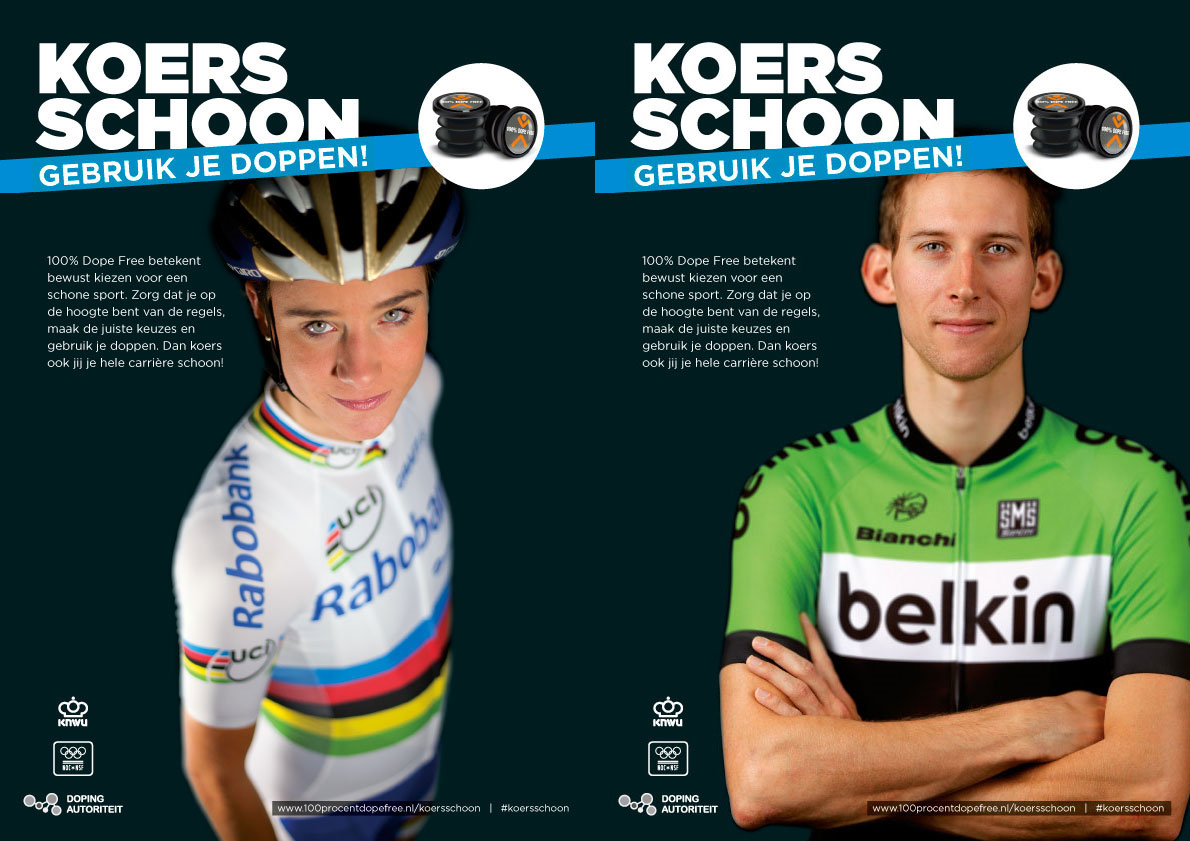
Information meetings
Members of the National Testing Pool are required to attend one Doping Authority information meeting a year. This can be arranged through the sports associations but collaboration is mostly with the Olympic Networks. In total, there were 36 information meetings for elite athletes (and up-and-coming athletes) and their immediate support staff.
Outreach Events
There were six outreach events in 2014. The idea is to deliberately target events/competitions where large groups of athletes (particularly young and talented athletes) and their parents and trainers/coaches are given general information and where they can put questions to the Doping Authority. There is also an opportunity to sign the 100% Dope Free – True Winner statement. By completing the WADA doping quiz, it is possible to win an incentive. Outreach events were organised at: ICIC2014, the National RAW Powerlifting Championships, the BMX World Championships, IPC Swimming (together with the IPC), the YOG team presentation and the National Tennis Championships.
Stay Negative! Leaflet
The small compact leaflet entitled Stay Negative! was used again in 2014. The aim of the leaflet is to inform large groups of athletes who may qualify for doping controls about the main risks that can lead to inadvertent doping infringements. In the future, the contents of this leaflet will be combined with the Doping Information App leaflet.
Talents Only
Doping information activities are focusing increasingly on talented athletes (International Talent, Dutch Talent, High Potentials). The brochure Talents Only! was published in 2013. Alongside the brochure, additional material can be found on the 100% Dope Free website, including thematic videos and additional texts. Talents can earn certificates by 'breaking the code' in the brochure. In 2014, 38 certificates were sent out. In order to enhance the response, it will be possible in 2015 to complete the code digitally, for example during information sessions.
Articles
A topical doping subject is discussed every month in the NOC*NSF elite sport magazine Lopend Vuur. A total of eight articles were published in 2014.
100% Dope Free videos
A video was produced in 2014 featuring Rudi Kemna's story. This was part of the campaign Racing for a clean sport.
Advertisements
With the appearance of the Doping Information App in late 2013, two advertisements were produced to promote the app. These advertisements were published in a range of sports magazines and as digital banners in 2014.
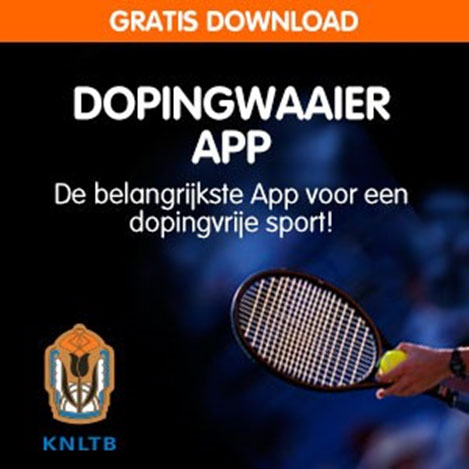
Doping Information App
A Doping Information App for iOS and Android was developed in 2013 with a project subsidy from the Ministry of Health, Welfare and Sport. There is a mobile (responsive) website for other systems: www.dopingwaaier.nl. In addition to the content of the paper copy of the Doping Fan Booklet, the app also makes it possible to check all medicines registered in the Netherlands to see whether they contain prohibited substances or not. The app can also be viewed on the Dietary Supplements list (NZVT). This all makes access to the information in the app simpler, cheaper and faster. Users now have the option of checking all medication and the Dietary Supplements list simply for themselves and so the entire system is more user-friendly.
The Doping Information App became available in late December 2013. By late 2014, the number of downloads was 8,396.
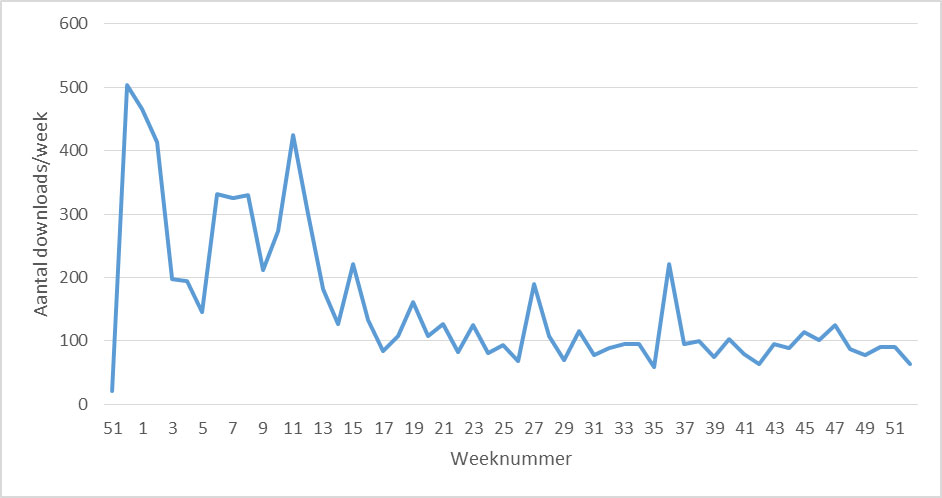
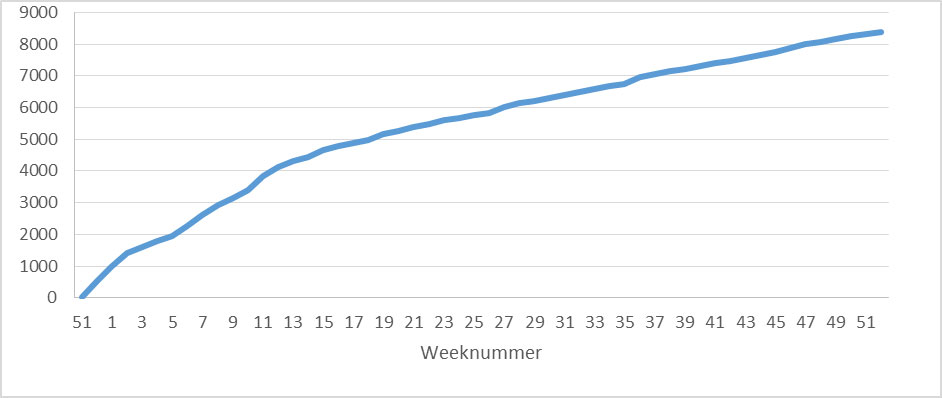
The various target groups were also informed about the app in a promotional campaign(with a z-card and advertisements).
Racing for a clean sport
The Anti-Doping Approach Commission - better known as the Sorgdrager Commission - published its report in June 2013. In the report, the Commission made a range of anti-doping recommendations for cycling and elite sports in general. At the request of the Ministry of Health, Welfare and Sport, a follow-up project was developed for 2014 working on strengthening the change in culture that had already begun. The project partners are the KNWU, the NOC*NSF and the Doping Authority. The project was given the name: Racing for a clean sport. A large part of the campaign is specific to cycling but there are also components that relate to other sports. Racing for a clean sport consists of five elements: raising awareness, openness, trainers & support staff, international cycling and doping controls. The Doping Authority was intensely involved with, in particular, the first and last of these elements.
Raising awareness
This element included the establishment and implementation of a range of activities.
- With Rudi Kemna (a former professional cyclist and now a team leader at Giant-Alpecin), information evenings were organised at all talent centres and districts. A video was produced telling Rudi's story so that it can be used on a larger stage. In addition to the video, a manual was produced to help cycling clubs themselves to organise workshops relating to this theme. The manual has been sent to all the clubs.
- An information package was developed for the grassroots of the Royal Dutch Cycling Union entitled Race clean, plug in. As well as general leaflets, the package also included handlebar plugs with the 100% Dope Free logo. Special stickers were produced for BMX cyclists. The handlebar plug campaign was launched at the National Cycling Championships in late June in Ootmarsum.
- An Ongoing Educational Module for Doping-Free Sport was developed in collaboration with NOC*NSF. This educational module comprises a programme of eight years covering the transformation from promising talent to elite athlete. A number of themes and concrete objectives were formulated as a basis for ascertaining what can be expected from young talented athletes. The content was subdivided into three information components: bronze, silver and gold.
- During the course of 2014, we worked on the 100% Dope Free Challenge, an on-line game for all members of the Royal Dutch Cycling Union. It describes dilemmas in five short clips, requiring the players to make a decision about each dilemma to pick up points. It is possible to play as an individual or as a cycling club. The aim of the challenge was to get people to think about the decisions made in doping-related matters.
Doping controls
In 2014, 100 extra doping controls were conducted at a slightly lower level and in a slightly younger target group than the group that is normally monitored. These doping controls were mainly intended to have a preventive effect. It is important for people to be aware of the possibility of doping controls earlier.
Sports organised outside a club context
Own Strength campaign
The main target group in sports organised on alternative lines consists of: visitors to fitness centres and their immediate circles (particularly fitness instructors). The Own Strength campaign was developed for this group. In 2014, the campaign material consisted of: a poster for men and women, an Own Strength container (in different sizes), a display with leaflets, a T-shirt, a water bottle and a DVD. The campaign was promoted in a range of fitness magazines and during educational activities, and there is a promotional leaflet. The campaign as a whole finished in late 2014. In the end, 194 fitness centres participated.
www.eigenkracht.nl
The Own Strength site plays a central role in the campaign. Alongside text, videos are being used more and more. In addition, there are four full annual programmes for four different training goals. The site has also been made more user-friendly by classifying postings under headings such as training, diet, supplements, doping, health etc. This makes it easier for visitors to find extensive information about specific topics. The website has now been on air for 14 years and it has become a reliable and rich source of information for many.
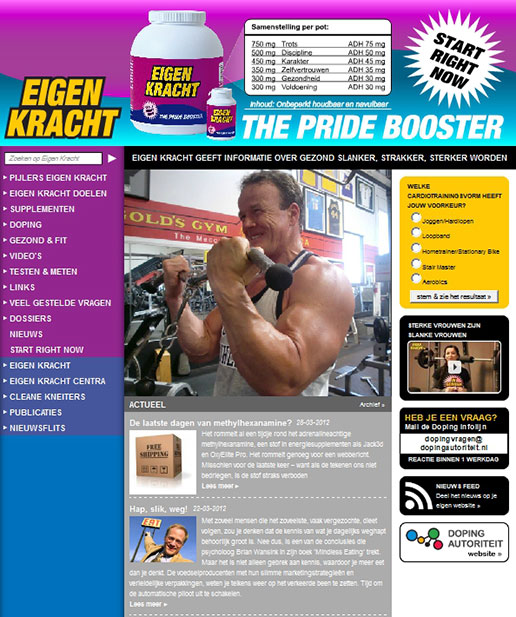
In 2014, the website as a whole was overhauled and given a more modern look. A total of 51 factual news reports were posted on the site. They were written by three external experts (journalists or specific experts) from the fitness/body-building branch and by our own prevention officers. On one occasion, there was a warning about the Unstoppable supplement, in which nor-DMAA had been found.
Videos
Own Strength has been using videos for some time. A range of videos were posted on the website in 2014.
Fitness courses & meetings
In 2014, the Own Strength campaign included about 17 guest lessons at numerous educational institutes and private fitness courses. The Own Strength water bottle (with the new house style) was handed out during those lessons to trainee fitness instructors.
Fontys University of Applied Sciences (Applied Psychology) approached the Doping Authority once again to look at possible ways of working together. This has taken the shape of an assignment for 150 second-year students, asking them to devise an information campaign for us that will target the more responsible use of supplements in fitness centres. It has led to more than 30 campaign proposals.
Clean Hunks
Clean Hunks are fitness athletes/body builders who have demonstrated that you can build up an impressive physique without dope. Another Clean Hunk joined the campaign in 2014 and so there are now a total of fourteen. They are all on the site, which includes background stories and photos. The Clean Hunks are, as it were, the ambassadors for the fitness branch. New ‘ambassadors’ have subscribed to the campaign quite regularly. Others can follow their example and join the campaign.
Articles
Since 1997, Own Strength has had a regular column in the popular bodybuilding magazine Sport & Fitness Magazine. Acting under its own editorial responsibility, the Doping Authority again supplied objective information in each issue about prohibited substances and related matters. Starting in 2014, rather than a single large article, several short reports have been published in Sport & Fitness. That was the case in all six issues.
Advertisements
In 2013, two new banners/advertisements were produced portraying two clean hunks (a man and a woman), who are also the face of the new website. After the publication of Doping, the sober facts, an advertisement was also produced for that book. These three advertisements appeared in 2014 on several occasions in Sport & Fitness, Muscle & Fitness, Flex and the Fit!vak magazine. Advertisements also appeared in Men’s Health, Fitness Expert, and Sport & Geneeskunde.
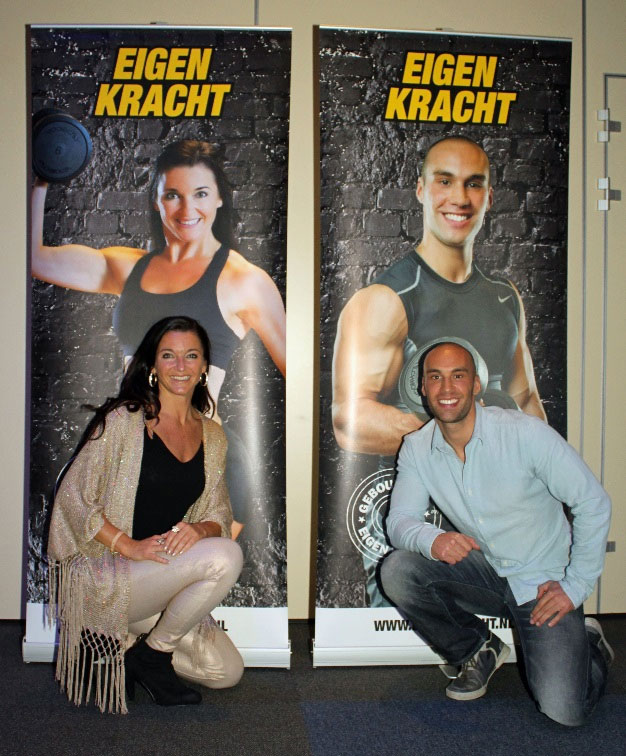
Book: Doping, the sober facts
The booklet Drug Info, doping. Hard facts about doping was published in 2000. Given the limited availability of the booklet at a given point in time - and the fact that it is outdated - work started on a new improved edition. The book's successor was published in October 2014: Doping, the sober facts. The publication was commemorated by a mini-conference in the NBC congress centre in Nieuwegein. At the end of the conference, the first copy was presented to Mr Van Wimersma Greidanus, the joint founder and former president of the Netherlands Centre for Doping Affairs (NeCeDo). Large amounts of publicity were subsequently generated for the book by means of advertisements in bodybuilding and fitness magazines. Approximately 500 copies had been sold by late 2014.
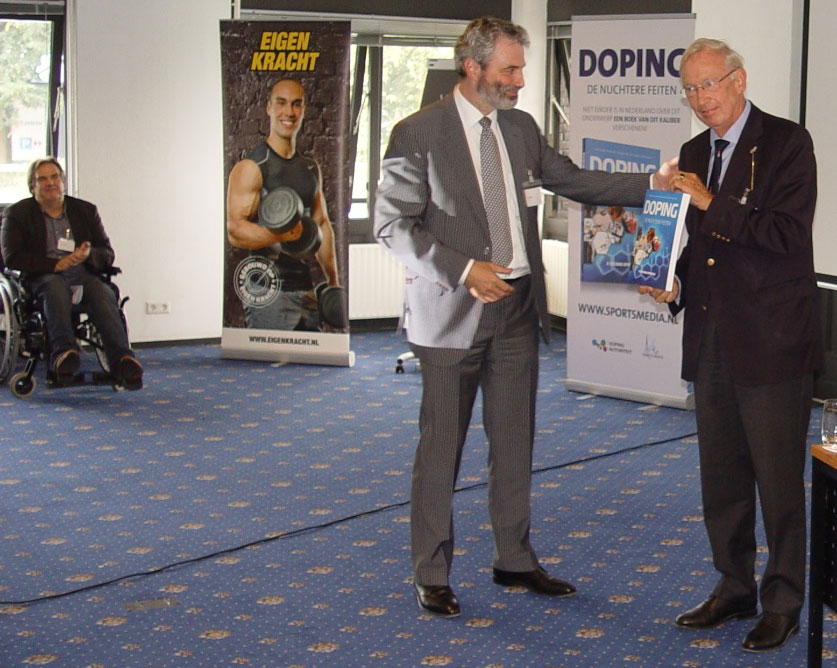
Support staff
In addition to the focus on athletes, there has been an increasing emphasis in recent years on a range of athlete support staff. They can play an important role in a positive sense. Trainers/coaches are particularly important here. Sports doctors and paramedics are also important.
Brochure for Support Staff
The brochure, entitled About support: how parents, trainers, coaches and other support staff can contribute to dope-free sports was distributed widely again at information meetings, training and refresher training and outreach events. A revised new edition was published in 2013 (with a print run of 7,500) in the 100% Dope Free house style. It is still being used.
Because the Doping Information App is also an important source of information for support staff, it was promoted more in 2014. For example, an advertisement was published in the NLCoach magazine on two occasions.
Coaches
Presentations were organised at a range of coach courses and refresher courses, such as the level 3 and level 4 cycling coach courses, the level 3 boxing trainer coaches, level 4 judo trainer/course, the top coach 5 course and the generic coach 4 course in Amsterdam and Zwolle.
An incentive was developed specially for coaches: a Coach Negative Coaching Folder. It was handed out to more than 400 participants at the Annual NLCoach Congress on 12 December. In addition, the Coaching Folder is handed out to the participants at courses.
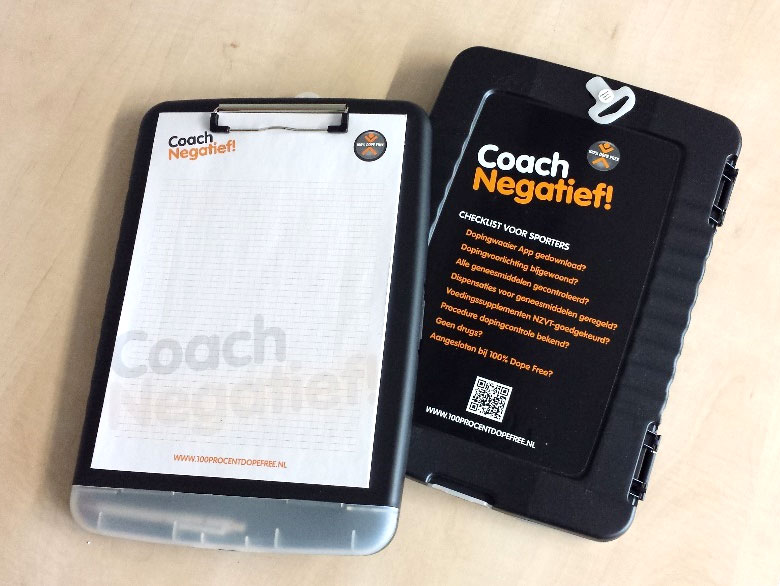
Medics/paramedics and other support staff
Presentations have been organised at a range of courses and refresher courses, such as the Sports Physiotherapy Master's Course, two courses for Sports Dieticians in Amsterdam and Nijmegen, the KNWU course for team leaders and soigneurs, Sports Psychology at Radboud University Nijmegen, and a course for GPs in the Amsterdam Medical Center Hospital (1x). There was also an outreach event during the jubilee congress of the Dutch Association for Sports Massage (NGS) on 1 February.
Sports associations
Meeting of sports associations
The annual meeting for the staff of sports associations Samen tegen doping! (Together against doping!) was organised for the fifth time on 14 October at Papendal. It was attended by more than 60 people. They were representatives of sports associations, Olympic Networks and CTOs (Centres for Elite Sports and Education). Six presentations were organised. The aim of the annual meeting is to catch up on developments in the field of anti-doping policy. The primary focus is on prevention. The programme included: Herman Ram on Developments in the anti-doping policy and the Implementation of the 2015 Code, Emiel Krijt on Sport and Integrity, Erik Duiven on Prevention in the digital world, Margo De Vries on Racing for a clean sport and Femke Winters about the Ongoing Educational Module for Doping-Free Sport.
General public
www.dopingautoriteit.nl
ANP news releases about doping make up an important part of the topical information on the corporate site. They are posted immediately after release. A total of 339 ANP news releases were published on the site in 2014 (after correction for improved or longer releases). We contributed 16 releases of our own to the site in 2014.
In addition to current news about doping, the site contains general information about the prohibited list, about the campaigns being conducted by the Doping Authority and about our own organisation. Athletes can turn to a separate service section to apply for therapeutic use exemptions, and there is a section where elite athletes can submit whereabouts information. The site also houses the Dutch dietary supplement database.
Doping Infolijn
The Doping Infolijn (DIL) is the front office for questions about doping and it is manned by five operators working at different times. All questions are processed within one working day and recorded anonymously in a database.
In 2014, the total number of e-mails was 680, which is down on the 1,045 questions in 2013. That is a considerable fall of 35%. This can probably be attributed to the Doping Information App, which makes it easy for athletes and support staff to check the medication. The number of questions submitted to the DIL via the Doping Information App proved to be small: there were approximately 25 questions of this kind in 2014.
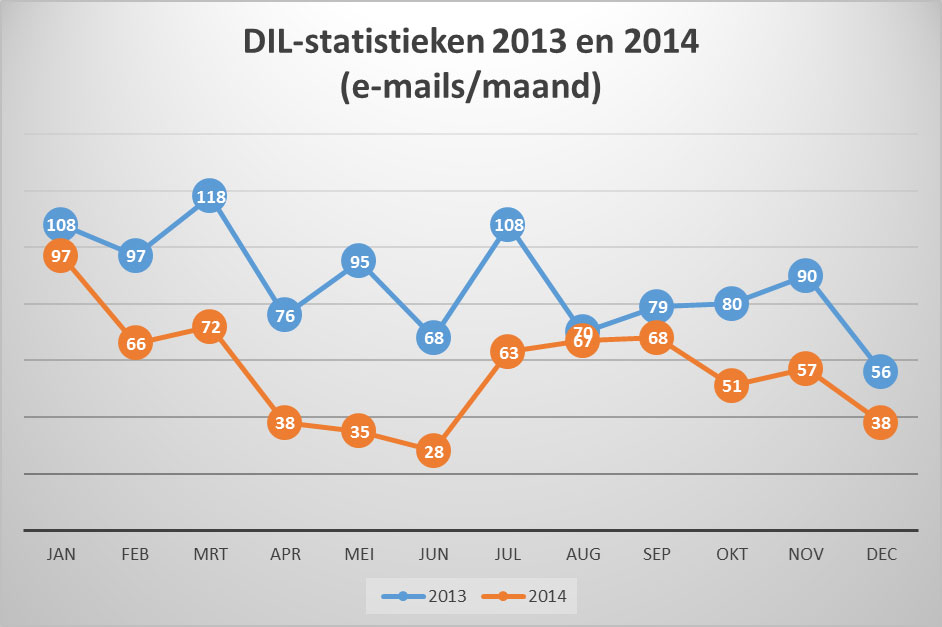
Press contacts
In 2014, the Doping Authority was approached on more than 500 occasions by the media, both for information and comments about current events and for answers to in-depth questions not related to topical issues. The CEO of the Doping Authority acts as spokesman. In his absence, or when specific topics are involved, the Doping Authority's Scientific Policy Officer sometimes take his place in this respect.
Press conference
The annual press conference was on 19 November in Nieuwegein. It was attended by eight journalists and representatives from the Ministry of Health, Welfare and Sport and NOC*NSF. The main topics discussed were: the new Code, supplements, the up-and-coming doping legislation and research looking at the prevalence of doping. The video with Rudi Kemna entitled 'That won't happen to me' was also shown.
Jubilee book and meeting
A jubilee book was published on the occasion of the 25th Jubilee of the Doping Authority: Doping under Control. 25 years of doping policy in the Netherlands (1989-2014). A range of people from outside the organisation also made contributions. The book included three parts: Dutch history, international history and theme-based history. The first copy of the book was presented on 14 October to representatives from NOC*NSF and the Ministry of Health, Welfare and Sport at the jubilee meeting at Papendal. Approximately 150 people attended that meeting. In addition to a number of speeches, there was also a short video with a history of the Doping Authority.
